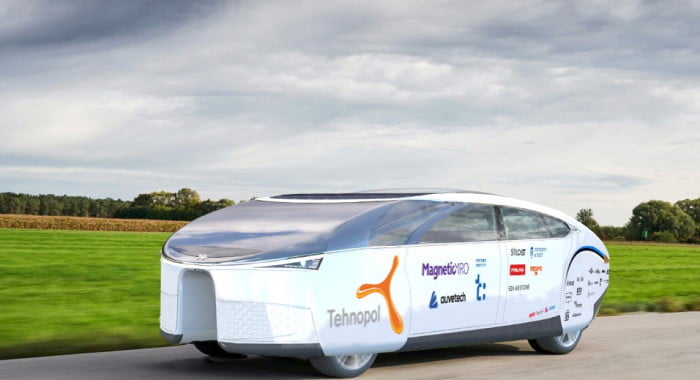It’s all very well and good buying a shiny new Tesla, or whatever more affordable brand of electric car you choose, but they do need to be plugged in and recharged from time to time (or very often depending on which one you pick).
Yet we drive them and park them under a sky that is literally throwing energy at them all day, the solar car would seem like an obvious solution, but the reality is that making it work is not an easy task at all. That doesn’t mean that nobody is trying though, and while we still seem quite far from being able to buy an affordable, efficient and road legal version, the technology is definitely maturing.
One of the most known testing beds for this research is the Bridgestone World Solar Challenge, an event that sees solar powered vehicles race more than 3000 km across the Australian outback, north to south from Darwin to Adelaide. It’s been held every two years since 1987, except for in the strange world of 2021.
Australia seems a sound choice for this kind of competition due to the sheer volume of sun it receives, and you might think that the teams that do well are also all from sun soaked countries, but there are plenty of European competitors as well with the most successful team in the competitions history coming from the University of Delft in the the Netherlands.
What there has not yet been in the more than three decades that the race has been running is a team from the Baltic States, which might seem a little surprising given the amount of tech innovation that goes on across Estonia, Latvia, and Lithuania.
That is all about to change though as Solaride, an Estonian team are preparing their entry to the WSC for 2023. The team were actually planning to compete in the race this summer, but for pandemic related global chaos and travel restriction reasons this years event has been cancelled.
Of course this delay gives the team, who are all volunteers, extra time to be sure of their first-generation vehicle, and possibly to also develop the concept and build a second-gen version before heading out to Australia in 2023.
The team the project as much more than just developing a competitive solar race car, but longer term to help grow Estonia’s profile and skills in the green technology engineering. The Solaride organisation is heavily embedded in the academic sector, with team members coming from universities across Estonia, and also financially backed by several of them. The government is also behind the project, with Solaride receiving €180,000 from the government and the Technopol Science and Business Campus last month.
With the delay of their WSC debut by two years, the team are not slowing down, but pressing ahead with the possibility of developing a second-gen car before they even reach Australia for the first time. They are also focusing heavily on developing their education program, and are also discussing the idea of organising a cross-Europe solar competition with other European solar car teams.
You can find out more about the project at the official website: solaride.ee
